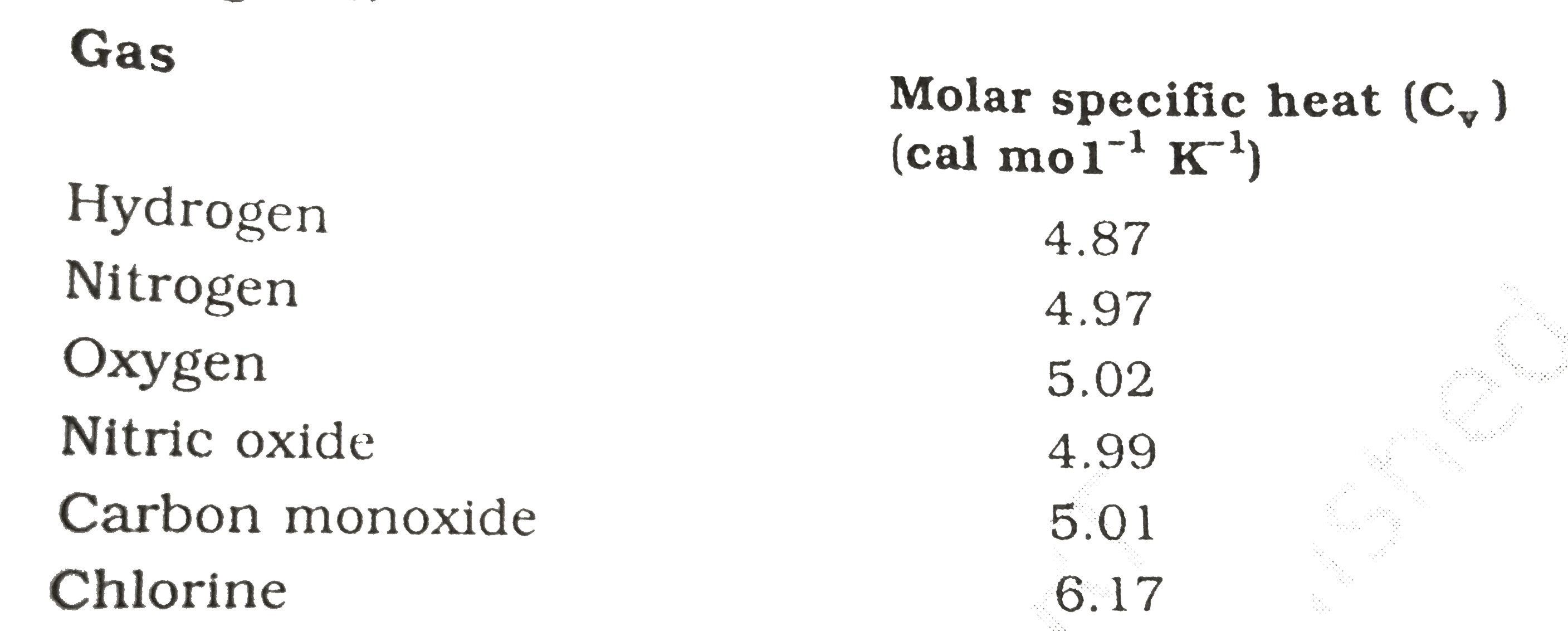Molar Specific Heat
Step by step video & image solution for Molar Specific Heat by Physics experts to help you in doubts & scoring excellent marks in Class 11 exams.
Updated on:21/07/2023Similar Questions
Given below are observations on molar specific heats at room temperature of some common gases

The measured molar specific heats of these gases are markedly different from those for monatomic gases. Typically, molar specific heat of a monatomic gas is 2.92 cal/mol K. Explain this difference. What can you infer from the somewhat larger (than the rest) value for chlorine ?
View SolutionAn ideal gas is made to undergo a process T=T0eαV where T0 and α are constants. Find the molar specific heat capacity of the gas in the process if its molar specific heat capacity at constant volume is Cv. Express your answer as a function of volume (V).
View Solution
Knowledge Check
The predicted values of molar specific heat capacity for gases generally agree with experimental values.
II. The predicted values of molar specific heat capacity for solids is equal to 3R and for most substances it agrees with, the experimental values.
III. The predicted values of molar specific heat capacity for solids at low temperature does not agree with the experimental values. Choose the correct option.AI onlyBII onlyCIII onlyDAll I, Il and IIIAn ideal diatomic gas is expanded so that the amount of heat transferred to the gas is equal to the decrease in its internal energy.
The molar specific heat of the gas in this process is given by C whose value isA−5R2B−3R2C2RD5R2The ratio of specific to molar heat capacity of a body
Ais a universal constantBdepends on the mass of the bodyCdepends on the molecular weight of the bodyDis dimensionless
